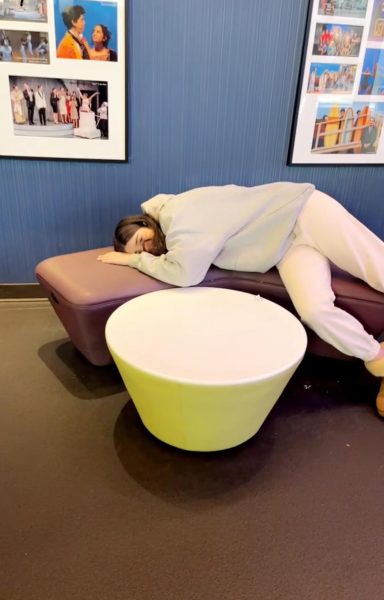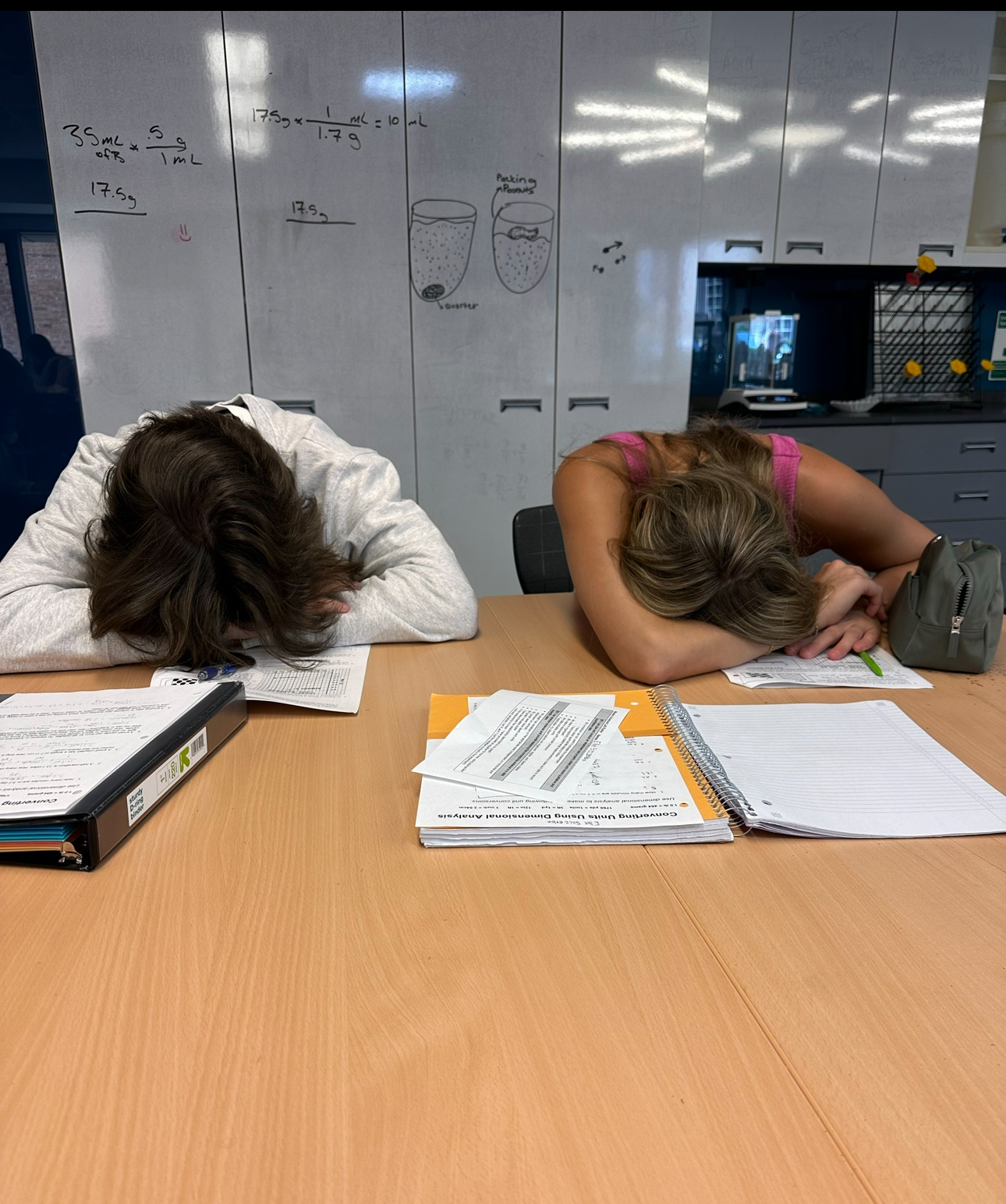Sleep is often said to be the secret ingredient to a teenager’s success—or downfall. From late-night study sessions to early school days, how can Latin help students balance a healthy relationship between academics and sleep?
For years, teenagers have gotten the least sleep of all age groups. According to the CDC, the epidemic of teenagers’ lack of sleep significantly increased from 2009 to 2021. In Illinois, 83% of teenagers get less than the necessary—not just recommended—eight hours each night. In the Latin community, students must constantly decide between prioritizing homework, social connection, or that extra hour of sleep.
Compensating for lost hours of rest and a relentless school schedule, many students turn to caffeine and other energy stimulants. “I usually have an energy drink at least three times a week to get me through the day,” junior Catarina Santana said.
Various studies emphasize that an inconsistent sleep schedule can harm a student's well-being. One Harvard University study reported that short-term effects of poor sleep habits include restlessness and insomnia, whereas long-term sleep deprivation can cause severe adverse mental health symptoms. Varying sleep schedules can also lead to lower academic performance: A good night's sleep, even on the weekends, can make or break a productive day at school.

But what are teens supposed to do about it? As students, athletes, or club heads, they can only cut so much out of their lives to get adequate sleep.
“I dance until 9:30 [p.m.], and I usually have lots of homework on Monday, so that usually sets me back for the night,” Catarina said.
The pressure of completing homework is a shared concern among students.
Freshman Arlo Heltzer said, “Homework, you have to get through it, you just have to, even if it means cutting a couple of hours of sleep out for that night.”
Both Arlo and Catarina acknowledge the importance of completing their homework, even at the cost of sleep. Catarina said, “I will never go to school without having my homework done, but I will procrastinate until 2:30 a.m..”
According to Education Week, the average high schooler has two to three-and-a-half hours of homework a night. A seven-hour school day with students running on an average of seven hours of sleep is draining, especially towards the end of the day.
“Sometimes I am reading a book at the end of the day, and I just fall asleep,” Arlo said.
The effect of insufficient sleep among students shows in classroom engagement and responsiveness.
Upper School science teacher Sarah Kutschke said, “When students are tired, they seem unmotivated to answer simple questions.”
To combat this fatigue, Upper School English teacher Brandon Woods proposed that the last block of the day should be asynchronous.
“By the time the last block comes, students have gone through four to five transitions, and it is too much to ask for students,” Mr. Woods said.
He also said homework may not always be more important than sleeping.
“I do not see any other way for students to get consistent [sleep] without cutting out some responsibility,” he said.
Ms. Kutschke agreed—she tries to assign a minimal amount of homework each night.
“I don’t think you can intentionally really work when you are exhausted after a full day of school and activities,” she said.
Completing assignments is important, and ensuring you're involved in extracurricular activities is critical to maintaining a balanced lifestyle. However, success is impossible without sleep. In determining whether to finish the homework assignment or go to bed, Mr. Woods would advise to “prioritize sleep.”











